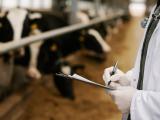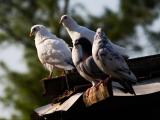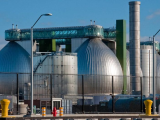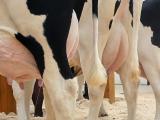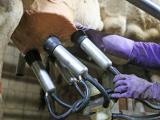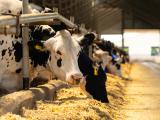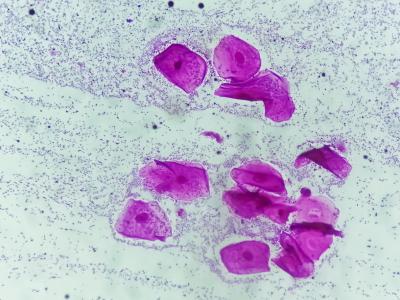Feb 11, 2004 (CIDRAP News) – The World Health Organization (WHO) warned yesterday that public health must outweigh economic concerns in responding to the highly pathogenic (H5N1) avian influenza crisis in Asia.
The warning came the same day as a report that the Indonesian government had not undertaken a mass slaughter of chickens to stop the outbreaks but was mostly leaving the job to farmers.
Meanwhile, a second outbreak of avian influenza was reported yesterday in Delaware, a few miles from the poultry farm where an outbreak of H7 avian influenza was reported last week.
The WHO statement said that in view of the risk that avian influenza in Asia could lead to a human flu pandemic, "Public health concerns about the present H5N1 situation must be given the highest priority when weighing the immediate and measurable economic losses in animals against possible yet unpredictable consequences for humans."
Control strategies must fit setting
The agency reiterated previous statements that "immediate culling of infected and exposed birds is the first line of defence" for both human and animal health. It also said that controlling highly pathogenic avian influenza is particularly difficult in areas where many rural families have small free-range poultry flocks. There is no "single blueprint" for controlling the disease in all countries, and health and agricultural authorities in each country should work together to devise an effective response, the WHO said.
The WHO statement did not say specifically that any affected countries have been letting economic concerns override human health. But an Agence France-Presse (AFP) report quoted the WHO representative in Thailand, Bjorn Melgaard, as saying, "Economics and agriculture are weighing too heavily in decisions taken by governments, and more concern should be given to the risk to human health."
According to the AFP report, an Indonesian agricultural official said yesterday that his government had conducted only one poultry-culling operation, involving 228,000 chickens Feb 6 on Bali. The government has said farmers have been destroying flocks on their own, the report noted.
The story also said officials in Thailand "bristled" at a WHO warning that Thailand might be lifting restrictions prematurely in areas affected by avian flu. Deputy Prime Minister Somkid Jatusripitak said outbreaks had been eradicated in all but one of 40 affected provinces but that officials were still alert for recurrences, according to the story.
China reported seven new suspected avian flu outbreaks yesterday, the AFP reported. The nation had 23 confirmed and 22 suspected outbreaks in 14 of its 31 provinces and regions.
Second Delaware outbreak
In Delaware, the detection of avian flu on a commercial poultry farm in Sussex County led to the swift destruction of 73,800 chickens yesterday, according to a report by the Delaware State News in Dover. State Agriculture Secretary Michael T. Scuse said the farm is "at least 5 miles" from the Kent County farm where 12,000 chickens were sacrificed Feb 7 after H7 avian flu turned up there.
The second farm was well outside the 4-mile-wide zone where 12 farms near the first affected farm tested negative for the disease, the State News report said. Scuse said it was not yet known how the virus, if it was the same one, had spread to the second farm. He said tests to identify the strain had not been completed.
However, a statement today by Delmarva Poulty Industry, Inc., a trade group representing poultry businesses in Delaware and nearby areas of Maryland and Virginia, attributed the Sussex County outbreak to the H7 virus. Officials say the H7 strain poses no risk to human health.
Scuse said about 75 farms within 6 miles of the Sussex County farm were under quarantine, according to the State News report. In addition, the state banned live bird sales, canceled meetings involving farmers and growers, and asked that farm auctions be postponed.
The Sussex County farm raises chickens for Perdue Farms, one of the nation's largest poultry companies. In a news release, the company said it responded to the outbreak by "immediately and humanely destroying" the flock and would dispose of the remains in a state-approved manner.
The Delmarva Poulty Industry statement warned that all companies and people providing services to chicken farms in the region should stay away from farms "unless they absolutely have to be there."
Earlier this week, US Department of Agriculture officials said the H7 virus identified in the first Delaware outbreak is likely to be a "low pathogenic" strain. At a news briefing Feb 9, Ron DeHaven, the USDA's chief veterinary officer, said, "This flock had been experiencing respiratory signs and depression but very low mortality."
DeHaven said the USDA National Veterinary Services Laboratory had identified the virus as H7. He added, "Because this particular flock grows chickens specifically for the live bird market in New York and New Jersey, we would expect that the virus is very likely to be the same low pathogenic H7N2 virus that we have been finding in the live bird market system for a number of years. We do not yet have the neuraminidase or N-typing on this particular virus, so we can't confirm that at this point."
See also:
Delaware Department of Agriculture
http://www.state.de.us/deptagri/
Perdue Farms' Feb 10 news release concerning the Delaware outbreak
Transcript of Feb 9 USDA news briefing
http://www.usda.gov/Newsroom/0073.04.html
